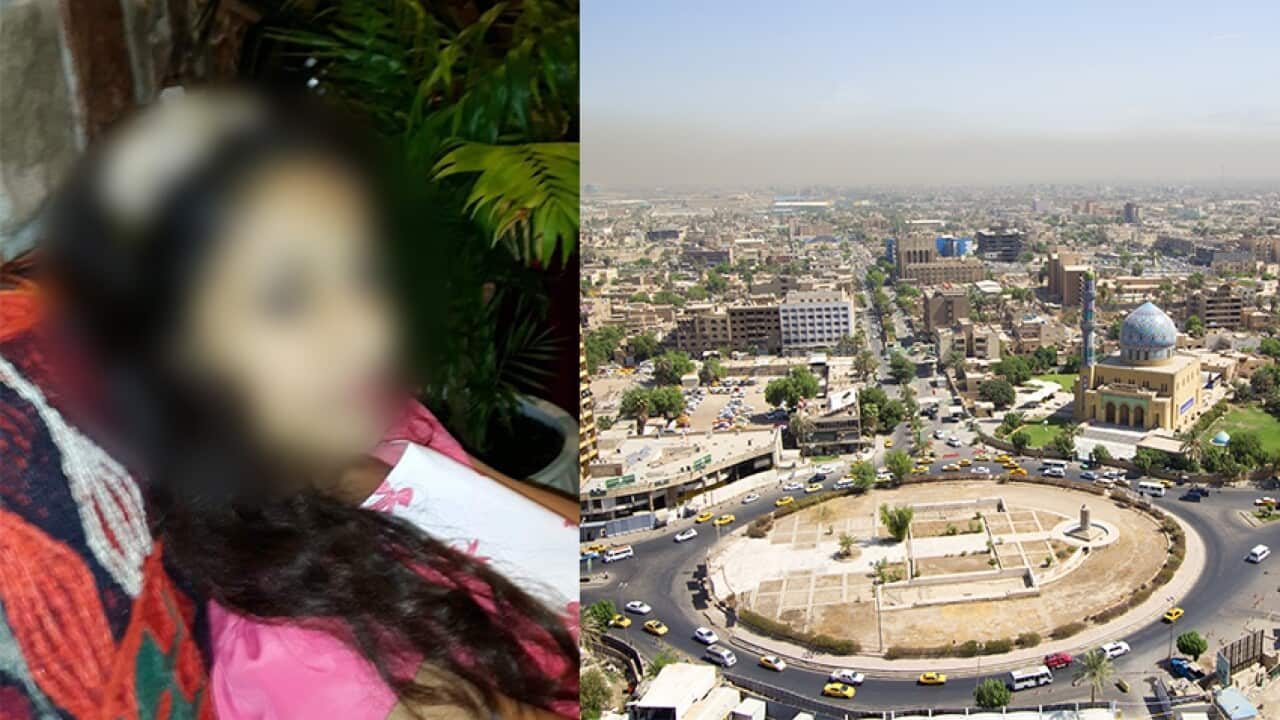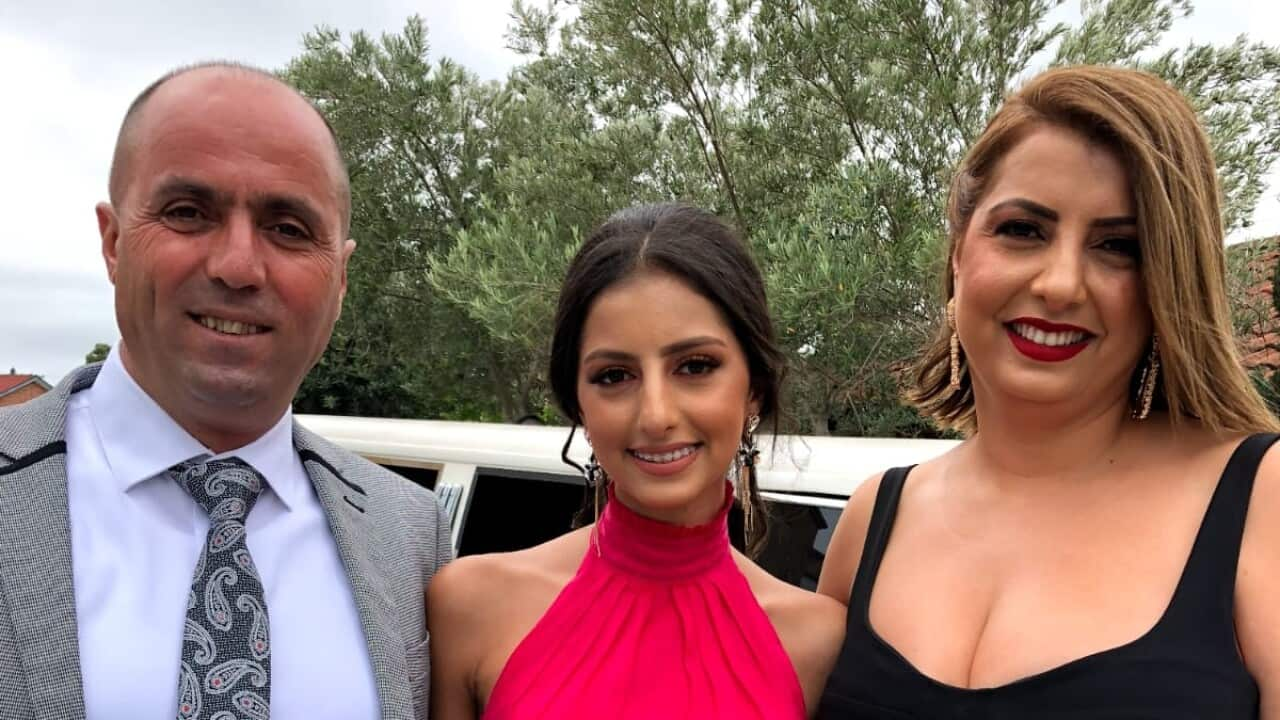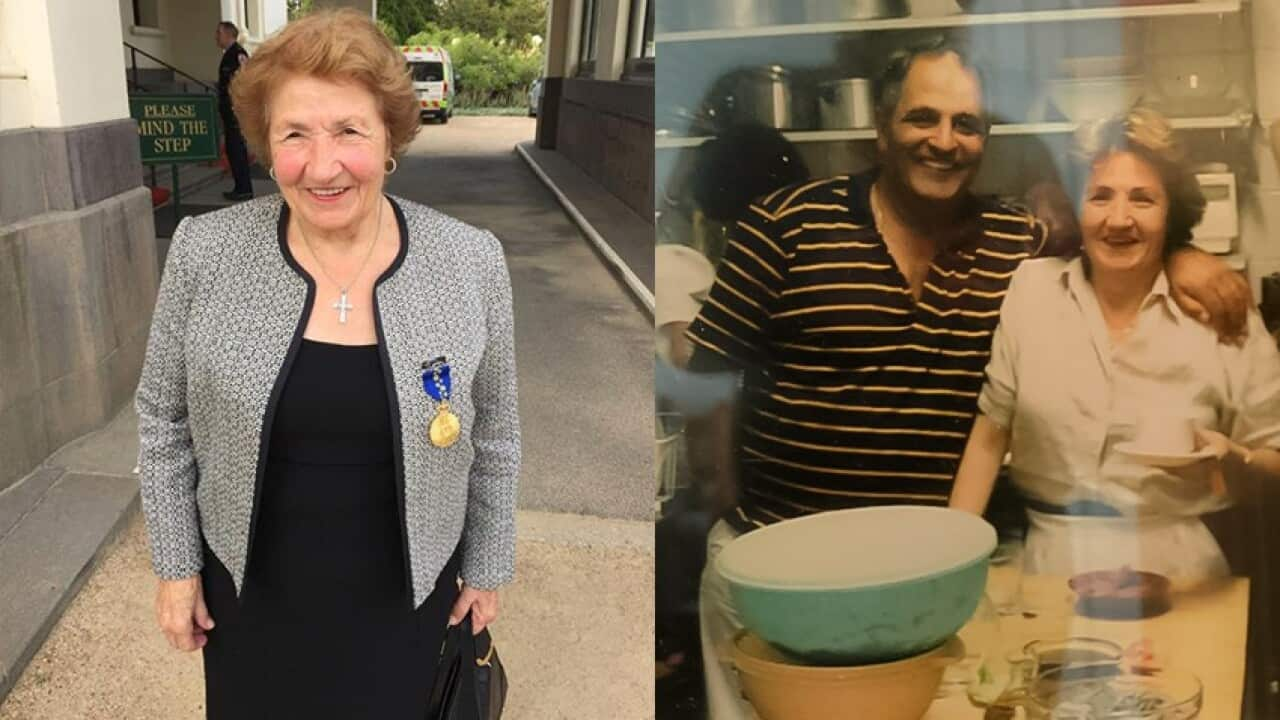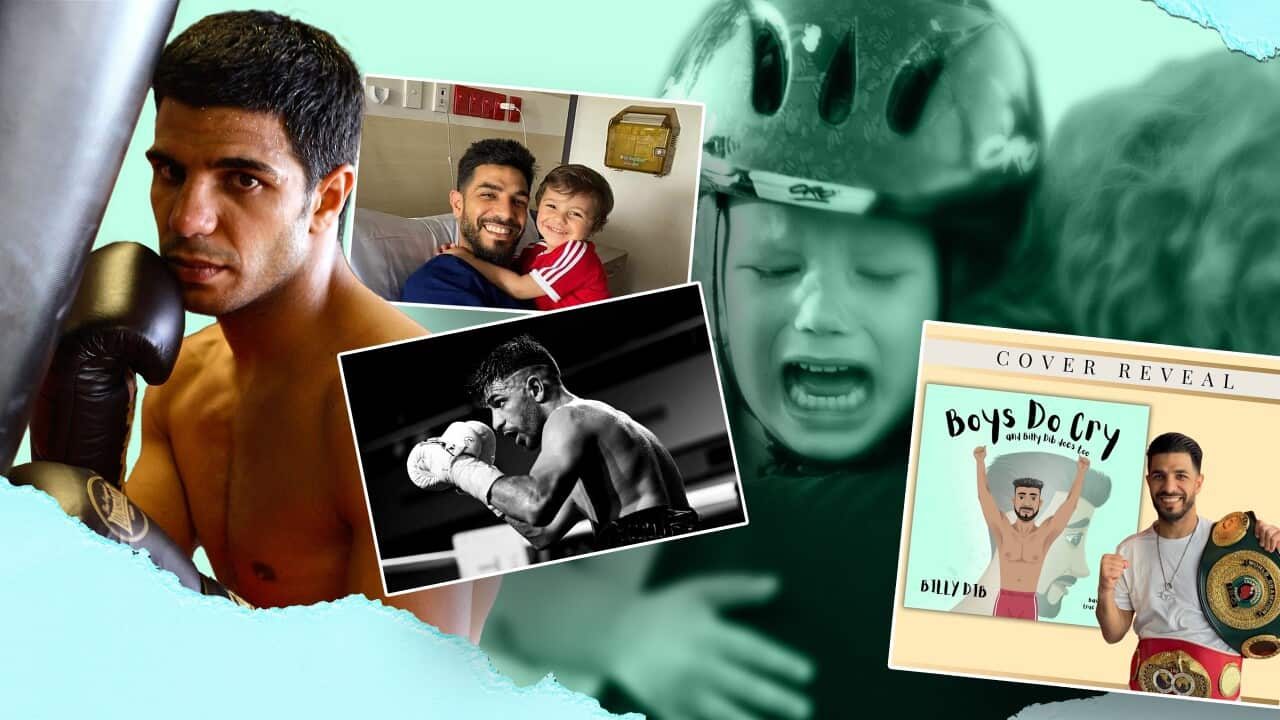Iraqi refugee Doha* sits with her eight-year-old daughter Nour during their joint therapy sessions at Foundation House, a not-for-profit Australian organisation that provides rehabilitation services for survivors of torture and other traumatic events.
Their sessions have been fundamental in helping them recover from a horrific incident in 2014, which came as a result of unrest in their Baghdad neighbourhood.
Doha tells SBS Arabic24 she was walking her daughter to school when they were stopped by militants.
“It was a normal day when a van stopped and blocked our way,” she says.
They then tried to take my daughter, I grabbed on to her but one of them hit me on the head with the gun, and took Nour.
“The thing that hurt me the most was that I couldn’t protect her, there were people watching, it was a normal day, but no one could intervene against the militants.” Doha spent a week in and out of consciousness due to her injuries and struggled to come to terms with her daughter's absence after she woke.
Doha spent a week in and out of consciousness due to her injuries and struggled to come to terms with her daughter's absence after she woke.

Nour with friends at a fun pack in Australia. Source: Doha
Five agonising weeks after Nour was taken, the family received a phone call from a person who asked for money in exchange for the youngster's life.
“Time stopped at the moment they took my daughter," Doha says.
“It was five weeks of pain and hurt, that I don’t wish for any parents, it passed like 50 years.”
The militant asked for US$100,000, but after negotiations with the family, the sum was lowered to US$50,000.
The family was forced to take out a loan on their home to make the payment.
“I still had very little hope that I will get my daughter back alive, a lot of people who got kidnapped were killed even after paying the ransom.”
After nine hours of negotiating, Nour was finally returned to her family.
Doha recalls that the incident took a huge toll on the family, and she knew that professional help was needed in order to recover from the trauma they endured.
The mother and the daughter began attending therapy sessions in their home city.
“They said [Nour] had a severe nervous breakdown," Doha recalls. “She was in shock; she couldn’t utter a word.”
At the same time, Nour’s father Wameed began looking for study opportunities abroad so the family could leave Iraq.
It was getting worse, and we started looking for ways to leave the country, so we can provide better care for our daughter.
He managed to obtain a study visa to do his Masters in Australia in information technology and the family arrived in Melbourne in 2015.
However, Wameed dropped out of university after one year due to financial pressures and obtained a protection visa for his family.
A new life in Australia
After arriving, Doha signed up to government-run English language courses for newly arrived refugees, which allowed her to network.
“The teacher in the English class helped me to get Nour into a Catholic school, which agreed to take her for free.
“She also put me in touch with Foundation House, which agreed to provide treatment for Nour for three years.”
She says the sessions were intense and included drawing, talking and a lot of crying.
“One time, Nour drew that she is in a place, and I am in another place far away from her, and she drew her hand stretching trying to reach me.
“This was the most overwhelming session for me because as a mother, I was ashamed that I couldn’t help her, and she was wanting to be with me.
We both talked about our feelings, I told her I am sorry I couldn’t protect you, and she hugged me tight and said it is not my fault.
Despite the intensity of the sessions, they eventually paid off.
“Now, we are talking more, I tell her everything I feel, and she does the same, even if she saw a nightmare, she would tell me the next morning.”
The family hopes that their "fresh start" in Australia will help them completely heal from the trauma they endured.
With Nour on the mend, Doha believes they are now more than halfway through their rehabilitation journey.
“We are lucky that we arrived in Australia, a country of safety and prosperity that opens its arms for everybody.”
Informed approach
Foundation House general manager of direct services Kylie Scoullar says the organisation provides a range of services and programs including torture and trauma counselling.
“We have a model for our staff, we call them counsellor advocates, and we make sure that they're highly skilled both in providing therapeutic counselling around trauma,” she tells Arabic24.
Ms Scoullar affirms that the organisation takes a highly informed approach to treatment, which is culturally responsive.
“We’ve got a very diverse staff group, and they usually put a lot of effort into and into understanding what happened in countries of origin over time.
“They're coming from a position where they at least have a good sense of the sort of experiences that clients from that area have had, and what might have happened.
"They don't need to explain everything from the very start if they were talking with a psychologist."
Readers seeking support and information about suicide prevention can contact on 13 11 14, on 1300 659 467 and on 1800 55 1800 (up to age 25).







